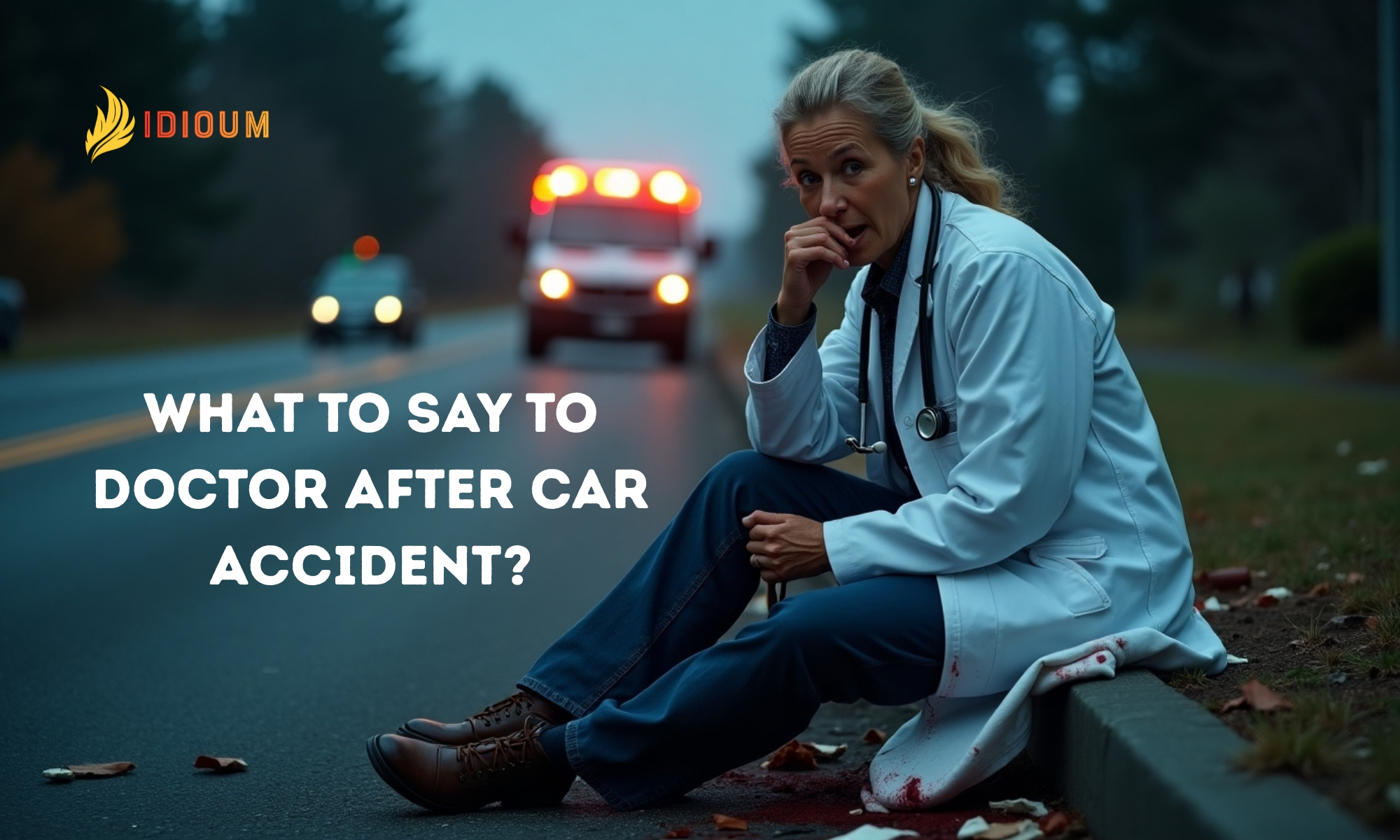Getting into a car accident is scary. Whether it’s a minor bump or something more serious, your body and mind may be in shock.
In that moment, knowing what to say to your doctor is not always easy.
But those first words matter a lot. If you’re wondering what to say to the doctor after a car accident, you’re not alone.
Saying the right things can help you get the best care and support your insurance or legal claims later.
This guide will help you feel prepared, stay honest, and know what details your doctor really needs.
Let’s break down what to do and what not to do when talking to your doctor after an accident.
Be Honest About the Accident and Your Symptoms
The first rule is simple: be honest. Tell your doctor exactly what happened. Even if it feels embarrassing or small, your doctor needs the truth to give you the right care.
Example: “I was hit from behind while stopped at a red light. My head snapped forward and back quickly.”
Also tell them about every ache, pain, or weird feeling, even if it seems minor.
Say this: “My neck feels sore, and I’m starting to get a headache.”
Avoid saying: “I’m fine” or “It’s probably nothing,” if you do feel off. Doctors need to know your full condition.
Don’t Downplay Your Pain
Many people try to be tough and brush off pain. But pain is your body’s way of telling you something is wrong.
Instead of saying: “It’s not too bad,” try: “I feel a sharp pain in my lower back when I stand.”
Use simple pain scales to help your doctor understand how much it hurts. For example, rate your pain from 1 to 10.
Real-life scenario: You feel dizzy hours after the accident. Tell your doctor right away. That could be a sign of a concussion.
Mention Every Part of Your Body That Feels Off
Car accidents can affect more than one area of your body. Even if one area hurts more, tell your doctor about all symptoms.
Say this: “My shoulder hurts the most, but I also have tingling in my fingers.”
Don’t leave out anything. Pain can show up days later, so mention anything new during follow-up visits.
Real-life tip: Keep a notebook of symptoms that come up over time. This helps your doctor track your healing.
Be Clear If You Lost Consciousness or Felt Confused
If you blacked out or felt dizzy or foggy, your doctor needs to know. These can be signs of a brain injury.
Say this: “I felt confused after the crash and can’t remember a few minutes.”
Don’t say: “I don’t think it matters.” It does matter.
Even if you think it was brief or not serious, speak up. Memory loss, blurred vision, or ringing ears are all worth mentioning.
Share If You Have Mental or Emotional Struggles
Accidents can affect more than your body. Fear, anxiety, or trouble sleeping are also medical issues your doctor can help with.
Say this: “I’ve been having nightmares since the accident. I feel nervous when I get in a car.”
Real-life example: A woman avoided driving for weeks after a crash. When she told her doctor, she was able to get therapy and heal emotionally.
Don’t hold back. Your mental health matters too.
Ask Questions and Request Medical Records
You have a right to understand what’s going on. Ask your doctor questions like:
- “Do I need X-rays?”
- “What’s the diagnosis?”
- “Can I get a copy of today’s records?”
This helps if you need the information later for insurance or legal help.
Also say: “Can you note that these injuries started after the car accident?”
This links your injuries clearly to the event, which can help your case if needed.
Final Thoughts
Knowing what to say to a doctor after a car accident helps protect your health and your rights. Be honest, share all symptoms, and don’t hold back on emotional struggles.
Your doctor is there to help but they need your full story to do that.












